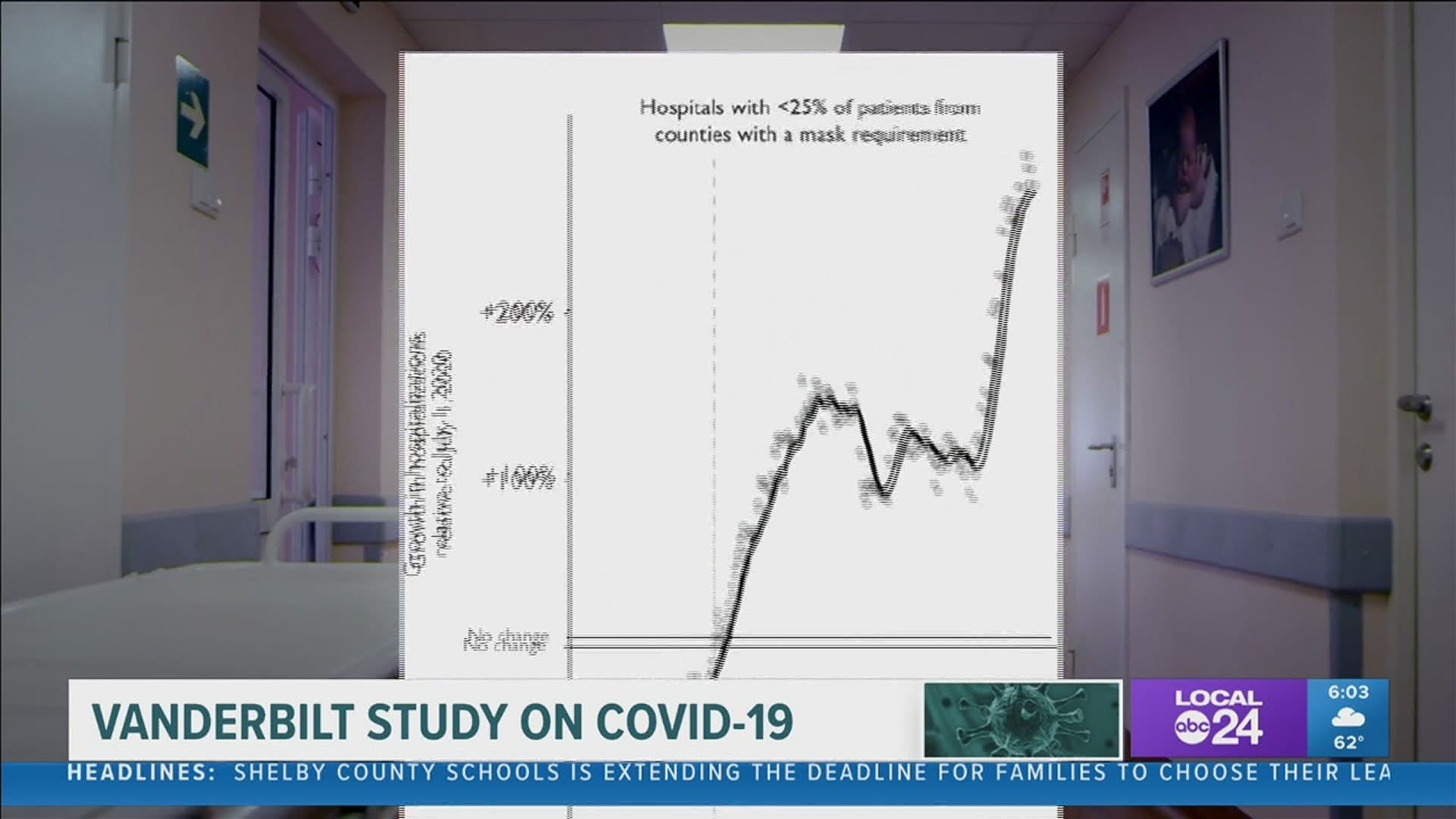MEMPHIS, Tenn. — A new report from Vanderbilt Medical School found hospitals drawing patients from counties with no face mask mandates are experiencing much sharper increases in hospitalizations. And there's new evidence that COVID infection rates are affecting Tennessee's economy.
"Those hospitals where they get their patients from - counties that have not been under a mask mandate - have had a much steeper and much faster rise in hospitalizations," said Melissa McPheeters, Vanderbilt researcher.
McPheeters said if you look at the data, you will see hospitalizations have skyrocketed in facilities where less than 25% of their patients come from counties where there is a mask requirement. At hospitals where the majority of the patients are coming from counties with a mask mandate, the hospitalizations are not seeing the same dramatic increase..
"Those communities where a mask mandate is enacted also tend to be doing other things - they tend to be promoting social distancing, they tend to be restricting other activities and so it's probably a combination of things."
The report also looked how COVID is affecting the economy.
"Sometimes people like to propose that there is a dichotomy - that it is either say it's either health and safety or the economy. But what we're saying, it's more complex than that is actually, and you have to fix the health issue in order to support the economy," said McPheeters.
Researchers looked at the 89 Tennessee counties where the safer at home restrictions were lifted at the end of September. According to the report, as cases and hospitalizations rise, consumers go out less and their spending patterns decline or shift to safer activities. For example, the report says restaurant business is down 25%.
"Even though restrictions have been lifted, people going to restaurants has not come back to the level expected based on activity a year ago," said McPheeters.
Statewide spending on arts and entertainment is down 52%, but grocery store spending is up 10%.
Researchers found only when transmission is reduced will individuals feel comfortable participating in activities that support the local economy as they did before the pandemic.
"That tells us something really important. That tells us in order to support our economy, we have to take actions to stamp out the virus," said McPheeters.
According to the report, the best way to manage the economic fallout is to use proven strategies, such as masking, social distancing, and even targeted restrictions to break the chains of transmission.

